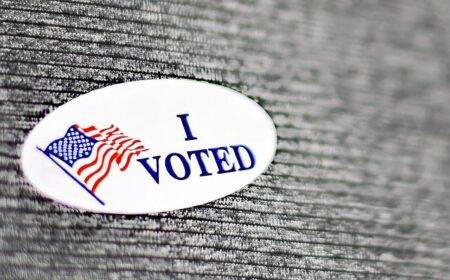In a significant development in transatlantic trade relations, former President Donald Trump has reached an agreement with the European Union to impose a 15% tariff on a range of goods. The deal, announced jointly by U.S. and E.U. officials, includes important exemptions for key industries, aiming to balance economic protectionism with strategic cooperation. This move marks a notable shift in trade policy, with potential implications for businesses and consumers on both sides of the Atlantic.
Trump and E.U. Forge New Trade Agreement with 15 Percent Tariff
The United States and the European Union have finalized a ground-breaking trade agreement that introduces a uniform 15% tariff on a broad range of goods exchanged between the two economic powerhouses. This strategic move aims to protect domestic industries while fostering a balanced trade environment. Notably, key sectors such as aerospace, pharmaceuticals, and technology have been explicitly exempted to maintain their competitive edge and support ongoing innovation on both sides of the Atlantic.
Key elements of the new agreement include:
- 15% tariff imposed on most imported goods to level the playing field
- Exemptions for critical industries to prevent disruption in supply chains
- Enhanced cooperation in trade dispute resolution mechanisms
- Commitment to regular review sessions to adapt tariffs as needed
| Industry | Tariff Applied | Notes |
|---|---|---|
| Aerospace | 0% | Exempt for bilateral innovation support |
| Pharmaceuticals | 0% | Exempt to ensure drug availability |
| Automobiles | 15% | Standard tariff to protect domestic manufacturing |
| Consumer Electronics | 15% | Subject to tariff with periodic reviews |
Key Industries Secure Exemptions Under the New Trade Deal
Under the terms of the new trade agreement, several industries have been granted crucial exemptions from the newly imposed 15% tariff. These exceptions aim to shield sectors deemed vital to both the U.S. and E.U. economies, mitigating potential disruptions in supply chains and market stability. Industries such as aerospace, pharmaceuticals, and renewable energy technologies will continue to operate tariff-free, preserving the flow of innovation and critical products across the Atlantic.
Key benefits of exemptions include:
- Aerospace: Protection of high-value exports and jobs.
- Pharmaceuticals: Ensuring access to critical medicines.
- Renewable energy: Supporting green technology development.
- Automotive parts: Maintaining complex supply networks.
| Industry | Tariff Status | Key Impact |
|---|---|---|
| Aerospace | Exempted | Protects $50B/year exports |
| Pharmaceuticals | Exempted | Preserves critical medicine trade |
| Renewable Energy | Exempted | Supports clean tech growth |
| Automotive Parts | Partial exemption | Maintains supply chain links |
| Steel & Aluminum | Tariff applied | Protects domestic producers |
Economic Implications for U.S. and European Markets Explored
The newly agreed 15% tariff between the U.S. and the European Union marks a significant shift in transatlantic trade dynamics, setting a precedent for protectionist measures that could reshape global economic relations. While key industries such as aerospace, agriculture, and technology receive exemptions, the broad imposition is expected to influence supply chains and manufacturing costs on both sides of the Atlantic. Market analysts are closely monitoring the ripple effects, with investors reacting to anticipated shifts in pricing, export volumes, and competitive positioning.
Key economic impacts include:
- Increased costs for importers and potential price hikes for consumers
- Heightened volatility in stock markets, especially within sectors exposed to tariffs
- Possible shifts in trade partners as companies seek tariff-free alternatives
- Pressure on multinational corporations to reassess production and distribution strategies
| Impact Area | U.S. Market | European Market |
|---|---|---|
| Manufacturing Costs | Rise by 5-8% | Rise by 7-10% |
| Export Volume | Down by 3% | Down by 4% |
| Stock Volatility | Moderate increase | High increase |
| Consumer Prices | Increase expected | Moderate increase |
Recommendations for Businesses Navigating the Updated Tariff Landscape
Businesses must proactively assess their supply chains to mitigate potential cost increases due to the newly imposed 15% tariff. Prioritizing suppliers within the exempted key industries — such as pharmaceuticals, technology components, and renewable energy products — could provide significant financial relief and operational continuity. Additionally, revisiting pricing strategies and renegotiating contracts will be essential steps to accommodate the updated tariff framework while maintaining competitive positioning.
To navigate uncertainties, companies should implement a robust monitoring system to track tariff changes and exceptions as these evolve. Leveraging government resources and trade advisory services can equip decision-makers with real-time insights. Consider these practical approaches:
- Conduct tariff impact analyses on all imported goods.
- Optimize inventory management ahead of tariff implementation dates.
- Explore alternative markets or domestic sourcing options to diversify risk.
- Engage in active advocacy via industry groups to influence future trade negotiations.
| Industry | Tariff Status | Recommended Focus |
|---|---|---|
| Pharmaceuticals | Exempted | Strengthen partnerships with E.U. suppliers |
| Automotive | Subject to 15% Tariff | Consider alternative sourcing and price adjustments |
| Renewable Energy | Exempted | Expand investments and market reach |
Final Thoughts
As the new tariff agreement takes effect, both the United States and the European Union will closely monitor its economic impact and industry responses. While the 15% tariff signals a shift towards more assertive trade policies under the Trump administration, the carefully negotiated exceptions for key sectors aim to mitigate disruption and preserve strategic partnerships. Stakeholders on both sides now face the challenge of adapting to this evolving trade landscape, with broader implications for global commerce in the months ahead.




